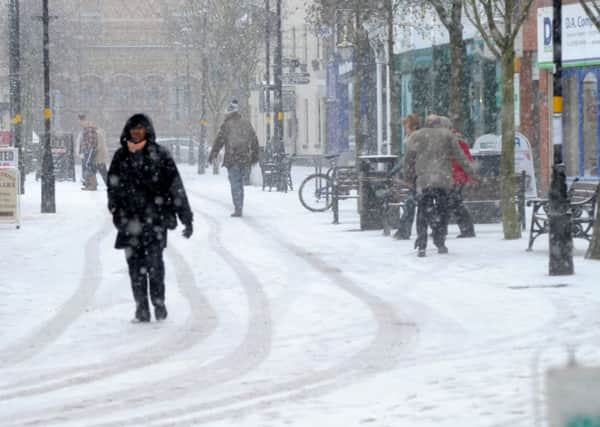Awareness week calls for more action to prevent winter deaths


Across Herts there were more than 620 winter deaths in 2012/13, which are deaths over and above the average death rate during non-winter periods, mostly die to elderly people dying from being too cold.
The week is run by the Energy Bill Revolution (EBR), an alliance of more than 200 charities, businesses and organisations, working to combat fuel poverty - a term given to households that cannot afford to keep their properties adequately warm at a reasonable cost, given their income.
Advertisement
Hide AdAdvertisement
Hide AdAge UK backs the awareness week and chief executive of the Dacorum branch - David Pearce - said its local handyman scheme plays a major part in identifying older people at risk during cold weather.
Mr Pearce said: “There are people that just can’t afford it [heating] so they are living in one room, socially isolated and just watching the TV. The rest of the house will be cold but that one room will be warm with the fire on but the radiators off.”
He said the charity’s handymen look at things like installing insulation and bleeding radiators. “Sometimes it as simple as that, or just giving some advice about keeping windows and doors closed,” said Mr Pearce. “We work with other organisations as well to do what we can.”
Older people are also given advice on keeping active and good nutrition.
Advertisement
Hide AdAdvertisement
Hide AdFor help and advice contact Age UK Dacorum on 01442 259049 or visit www.ageuk.org.uk/dacorumThe region’s ambulance service has issued health advice to help people stay well during the current cold snap.
East of England Ambulance Service NHS Trust locality director Dave Fountain said: “It’s easy to know how to keep warm and safe, but sometimes it’s worth just thinking about whether what you’re doing is enough to help keep the condition under control. If not, this can lead to complications and even an emergency, which could have been avoided.
“Perhaps use a hot water bottle or electric blanket, increase the number of hot meals you have like switching from cereal to porridge for breakfast, and try and cover all the draughts your house has. Most people also benefit from wearing layers of thinner items of clothes rather than just wearing a big jumper, as it means you can add or take away depending on how warm you are.”
The service also wants parents to ensure their children are reducing their risk of illness, and slips and falls in ice and snow. Mr Fountain said: “Children are pretty resilient, but it’s worth reminding them that walking in icy conditions needs a bit of tactic, and that the scarf and hat you’re encouraging them to wear really are great protectors to the biting cold whipping around them.”
For more tips and advice visit www.eastamb.nhs.uk/news/Campaigns/wise-up-for-winter.htm